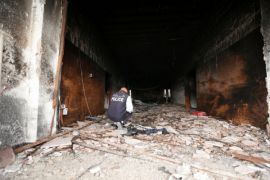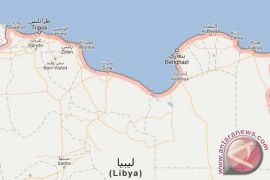The final statement from the talks made no mention of any possible exile, but Frattini said: "A consensus has been reached, participants at the meeting unanimously said that Kadhafi must leave the country.
"Beyond that, it depends on the country which may offer to welcome Kadhafi. There is as yet no formal proposal, no country has formulated such a plan, even the African countries which may be ready to make one."
Speaking in French, he insisted this did not mean immunity, saying: "We cannot, we do not want to say that because immunity would be in violation of the Rome Statute" which established the International Criminal Court (ICC).
Asked about how the Libyan situation would be resolved, he said: "The precondition is that he (Kadhafi) leaves the country."
At the weekend, Frattini set out the broad outlines of a diplomatic plan to resolve the Libyan crisis that could include exile for Kadhafi, although the rebels fighting his regime said they wanted to see him tried for war crimes.
Speaking after the conference, British Foreign Secretary William Hague, repeated his assertion that Kadhafi should appear before the ICC but did not rule a possible exile plan when asked.
"We`re not engaged in the United Kingdom in looking for somewhere for him to go; that doesn`t exclude others doing so," Hague said.
He added: "We all agreed that Kadhafi and his regime had completely lost legitimacy and would be held accountable for their actions. That is extremely strong international pressure for him to go."
Hague insisted: "There is no future for Libya with Kadhafi in charge, or trying to hang on to power there."
The final conference statement said that participants, which included Arab nations and the UN and NATO chiefs, agreed that "Kadhafi and his regime have completely lost legitimacy and will be held responsible for their actions". (*)
Editor: Kunto Wibisono
Copyright © ANTARA 2011



